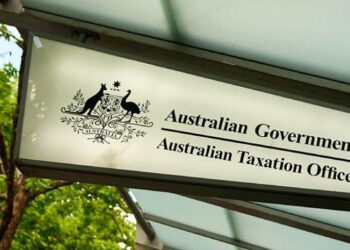In a statement this week, Assistant Treasurer Stuart Robert said the government first announced it would be making changes to the tax deductions for vacant land in the 2018-19 budget, following concerns that deductions were being improperly claimed for holding vacant land where the land is not genuinely held for the purpose of earning assessable income.
Treasury has now released the draft legislation for the amendments, which you can access here.
The explanatory memorandum states that under the current law, a taxpayer can claim deductions for losses or outgoings incurred to the extent they relate to holding vacant land if the losses or outgoings were incurred in gaining or producing their assessable income or they relate to the taxpayer carrying on a business in order to derive assessable income.
Under the new amendments, set to apply from 1 July 2019, a taxpayer cannot claim deductions for losses or outgoings incurred to the extent they relate to holding vacant land, unless they are incurred in the course of a business the taxpayer carries on or an affiliate, spouse or child of the taxpayer, or an entity that is connected with the taxpayer or of which the taxpayer is an affiliate, uses the land in carrying on a business.
While the draft legislation explains that companies, managed investment trusts, unit trusts and APRA based super funds including small APRA funds will be excluded from these new amendments, the proposed changes for vacant land tax deductions will apply to individuals and SMSFs.
SuperConcepts executive manager for SMSF technical and private wealth Graeme Colley said it was unusual that it applies to individuals and SMSFs to the exclusion of companies, managed investment trusts, public unit trusts and unit trusts as well as all APRA based funds including SAFs.
Mr Colley said while this may appear strange that superannuation plans have been excluded but not SMSFs, this is likely because individuals have control over the SMSF.
He referred to the explanatory memorandum, which states that the amendments do not apply to deductions for institutional investors in residential premises.
“Institutional investors usually operate under a corporate structure, are public unit trusts, managed investment trusts, or meet the description of being a ‘superannuation plan’ that is not an SMSF or are unit trusts or partnerships that are ultimately held by these entities,” the EM states.
“Generally, such investors are considered to have a low risk of incorrectly claiming deductions in relation to vacant land, as these entities are either outside the control of an individual, do not receive tax concessions which flow through to individuals or both.”
Mr Colley said that if an individual or SMSF is involved in a primary production business, possibly via the associate rule, deductions may still be available.
“I think there is a bit of an overlap with the general deductions provisions in the tax law and how an expense is deductible to the extent to which it is incurred in gaining the assessable income. This would not permit a deduction to the extent of the non-deductible expenditure,” he explained.
“In a lot of cases, you would have expected the non-deductible expenditure was added to the CGT cost base of the asset, which is pointed out in the explanatory statement.”
One aspect which could be better defined in the legislation, he said, is what is considered to be vacant land.
“They do use examples where there are no buildings on the land and things like that, but what is vacant land in a business?” he said.
“For example, you might have a factory where outside that factory you’ve got areas which are merely lawns or paths where people would enter. Or you might have a carpark that looks like a vacant block of land but people can park their cars on it, so does the parking of a car on a block of land change its nature to being vacant to being used as part of the business? How do you apportion that if it’s only being occasionally used for those purposes?”
He also explained that deductions don’t apply during building periods where local councils or even state government won’t permit land to be built on.
“An example of that is with contaminated land. If you were going to redevelop a petrol station, for example, that needs to be left vacant, so if an individual owned a petrol station or the land on which a petrol station was and there was some leaching into the soil of petroleum or whatever it might be, and you’re not allowed to start building on that until that period is over, that’s not included,” he explained.
“I think that might be a little tough because part of the process of developing that land is to leave it undeveloped for some time, and I wonder whether there should be a deduction to cover types of periods in the lead up, because you would have applied to your development authority and all those sorts of things.”
Treasury is consulting on the draft legislation until the end of this month.


